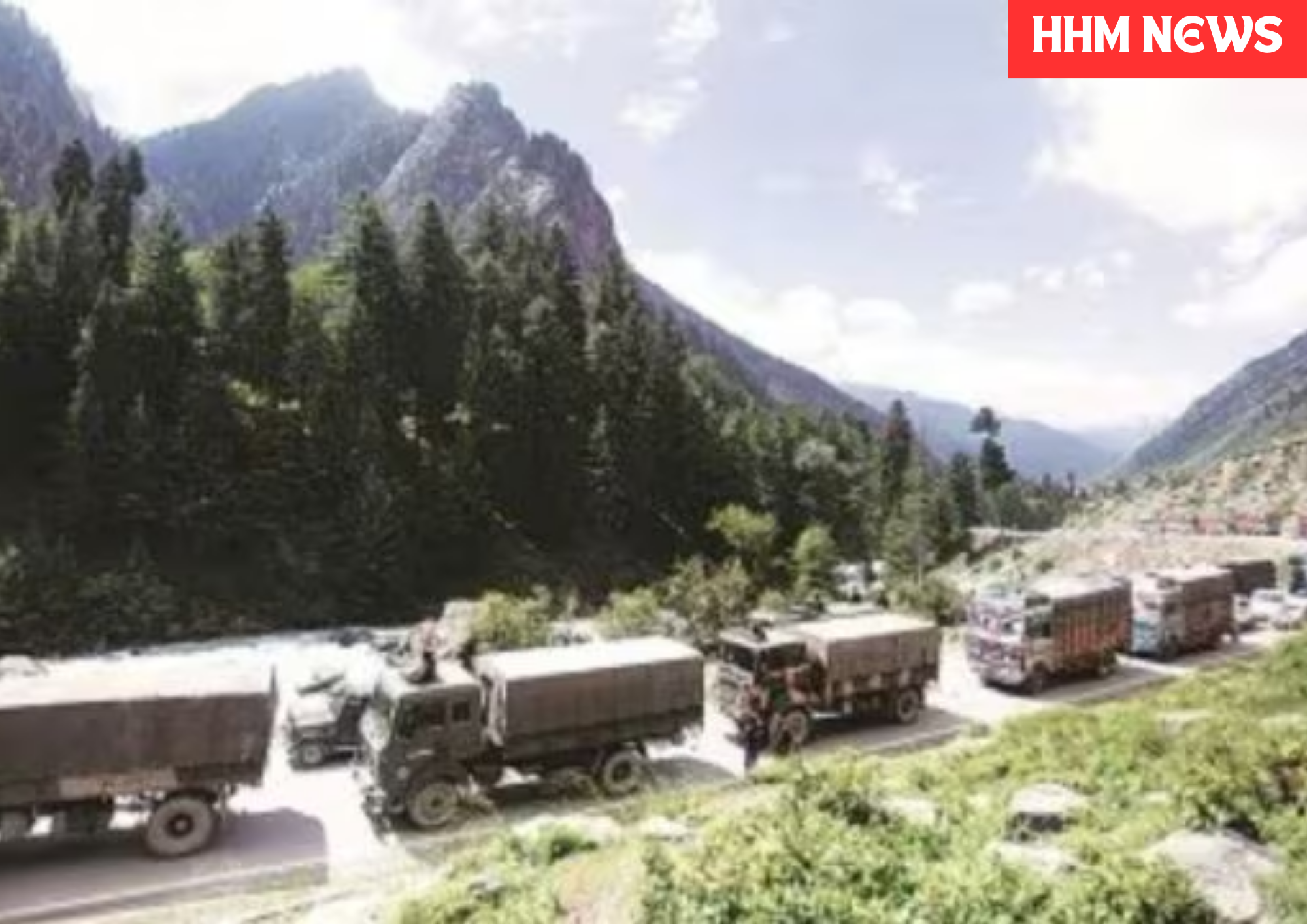Our preparedness levels of very high order: Army Chief Gen Pande on eastern Ladakh situation
With the almost four-year border dispute with China in eastern Ladakh as a backdrop, Army Chief General Manoj Pande stated on Wednesday that the Indian Army is keeping a “very close watch” on developments on the other side of the border and that its readiness levels are of a “very high order.”
Army Chief Gen Pande also expressed his opinion that the current balance of concerns can only be resolved “through talks” in answer to questions posed during a panel discussion at Times Now Summit.
On May 5, 2020, a violent altercation in the vicinity of Pangong Lake led to the outbreak of the eastern Ladakh border standoff.
After the confrontation in the Galwan Valley in June 2020, which was the most serious military conflict between the two sides in decades, the ties between the two countries took a severe hit.
“We are ready for anything. Our levels of operational preparedness and readiness are really high. I would describe our deployments as being both balanced and robust along the whole 3,488 km (LAC) of our borders. Additionally, we have made sure that we have sufficient reserves to handle unforeseen circumstances. General Pande declared, “We have our response mechanism firmly in place.”
In light of the ongoing standoff at the Ladakh border in the east, he was questioned about the readiness of the Indian Army.
We converse on two different levels. One is at the military level, where we have held 21 rounds of discussions with our corps commanders. He stated that multiple rounds of WMCC negotiations have taken place since the mid-2020 incident at the diplomatic level, where the WMCC (Working Mechanism for Consultation and Coordination on India-China Border Affairs) mechanism is in existence.
The WMCC met for the 28th time on November 30, 2023. I really think that the best way to resolve the current balancing concerns is to have conversations. The Army commander stated, “As these discussions move forward, we are also concentrating on capability development along our northern borders, of which technology infusion and modernization are important.”
The Army is concentrating on developing its infrastructure, according to General Pande, who added, “I believe we are moving in the right direction.”
“We are closely monitoring developments and events occurring on the other side of the border, and we are extremely well-prepared,” he continued.
When asked how serious a threat China was perceived to be, General Pande occasionally replied, “We keep reviewing threats.” Accordingly, danger in the winter might differ somewhat from that in the summer, he continued.
“Our preparedness level is of a very high order, just as our western adversary, with respect to our northern adversary,” declared the Army chief.
He emphasized the Army units stationed in the UT, both in the hinterland and along the LoC in a counter-infiltration grid, in reference to the state of affairs in Jammu and Kashmir.
“Infiltration attempts are still underway, both in the Valley region and south of the Pir Panjal region. However, we have a very strong and successful counter-infiltration grid that works,” he stated.
General Pande responded to criticism of the Agnipath program by stating that it was a “transformational” reform or change that “we undertook in the past so many years.”
General Pande stated that the feedback from the troops is “extremely encouraging, extremely positive” and that it is “misplaced” to be pessimistic about what will happen to the Agniveers in four years.
He commented, “Close to 128 women officers are now donning the rank of a colonel and they are now commanding officers,” about the position of women in the army.
Concerning the Indian Army’s involvement in managing the Manipur issue, the general was also questioned.
“On the evening of May 3–4, I believe we were able to significantly reduce the degree of violence thanks to our proactive deployment and the introduction of more troops. General Pande stated, “I would say that the army units stationed there, as well as the Assam Rifles, have given an excellent account of themselves.”
“I would believe they have done an excellent job” in protecting the civilian and non-military population from collateral damage while also guaranteeing their own safety.
General Pande listed the issue of firearms that are still readily available as one of the difficulties there.
He continued, “There is a cause for concern” because there are still a sizable quantity of guns that are readily available.
The Army chief also mentioned the challenge of actions occurring across the border between Myanmar and India while these kind of weaponry are readily available.
According to General Pande, the crisis in Manipur goes beyond land domain or law and order issues.
To be able to address the persistent problems there, we will need to develop a really thorough and extensive framework. There is a sizable ex-serviceman population here. Thus, we have requested that they interact with individuals. In several relief camps, our units are providing assistance to internally displaced persons,” he stated.
In his introductory remarks, General Pande stated that he considered the Indian Army to be “a key contributor and a stakeholder” in the development of the country.
“I think that progress and national security are closely intertwined. Although economic development is the primary driver of prosperity, the military’s might gives the country the ability to handle present and upcoming security threats. The army is fully committed to India’s success story, he declared.
BY-HHM
